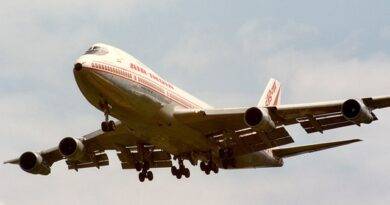Pros and Cons of Being a Flight Attendant: Is It the Right Career for You?
Flight attendants play a crucial role in the aviation industry, ensuring the safety, comfort, and convenience of passengers during their journey. It’s a job that attracts people from various backgrounds and interests, offering unique opportunities and challenges. If you’re considering a career as a flight attendant, it’s important to weigh the pros and cons to determine if it aligns with your goals and aspirations. In this article, we’ll explore the advantages and disadvantages of being a flight attendant, providing you with insights to make an informed decision.
Who is a Flight Attendant?
A flight attendant is a travel professional who serves as a resource for passengers on an aircraft, ensuring their comfort and safety. They are employed by commercial airlines and may also work for private businesses. The responsibilities of a flight attendant typically range from boarding passengers before a flight to completing necessary tasks after every passenger has disembarked. Flight attendants may also be on-call, meaning they must be available to work when called upon.

Advantages of Being a Flight Attendant
Working as a flight attendant offers numerous benefits, including:
1. Travel Opportunities
One of the most appealing aspects of being a flight attendant is the opportunity to travel frequently. Depending on your schedule, you may have the chance to explore different destinations during layovers or before your next flight. Additionally, flight attendants enjoy breathtaking views from the aircraft while flying over landmarks and approaching cities. The best part is that flight attendants often receive free or discounted tickets, allowing them to travel without incurring significant expenses.
2. Flight Benefits
Flight attendants and their families often receive discounted rates for personal travel. These flight benefits can help you save money when planning vacations or visiting loved ones. It’s essential to research the specific benefits offered by different airlines to determine which ones provide the most value for your needs.
3. Flexible Scheduling
Flight attendants have the advantage of flexible scheduling due to the variable nature of flight departures and arrivals. Many airlines allow employees to trade flights with each other based on factors such as seniority and logistical considerations. This flexibility can accommodate personal schedules and preferences, and some flight attendants also enjoy paid time off provided by their employers.
4. Meeting People
Working as a flight attendant provides ample opportunities to meet a diverse range of people. Flight attendants interact with passengers from various backgrounds, cultures, and age groups, allowing them to develop their interpersonal communication skills. Building connections with passengers and colleagues can lead to lifelong friendships and expand your professional network.
5. Variety in Work
Flight attendants experience a dynamic work environment where no two days are the same. Each flight brings new experiences, destinations, and passengers, making the job exciting and unpredictable. This variety helps flight attendants stay engaged and sharpens their professional skills.
6. Job Security
The demand for air travel remains consistently high, ensuring job security for flight attendants. People choose air travel for its convenience and speed, whether for business events, vacations, or personal obligations. This ongoing demand ensures stability and long-term employment opportunities for flight attendants.
7. Indoor Work Environment
Flight attendants work in climate-controlled aircraft and airports, avoiding exposure to extreme temperatures. This indoor work environment ensures comfort and helps flight attendants maintain their well-being.
8. Physical Fitness
While the responsibilities of a flight attendant may not require strenuous physical labor, the nature of the job keeps them active and on their feet. From boarding planes to attending to passengers’ needs, flight attendants engage in physical activity throughout their shifts, promoting a healthy and active lifestyle.
9. Social Interaction
Flight attendants have ample opportunities to socialize and develop their communication skills. The job requires constant interaction with passengers, crew members, and various professionals in the aviation industry. This social aspect can be fulfilling for those who enjoy spending time with others at work.
10. Complimentary Meals
Flight attendants often receive meal reimbursements while on duty, ensuring they are well-nourished during their shifts. This benefit helps them avoid the challenges of preparing meals while traveling and prevents the need to purchase expensive food at airports.
11. Employee Benefits
Many airlines offer their flight attendants a range of benefits, including medical, dental, vision, and life insurance coverage. Some airlines may also provide additional travel-related perks such as free or discounted flights, further enhancing the overall employment package.

Disadvantages of Being a Flight Attendant
While being a flight attendant offers numerous advantages, there are also some challenges to consider:
1. On-Call Scheduling
Flight attendants may be required to work on an on-call or reserve basis. This means they must be available to work a flight within a specified time frame, often with short notice. On-call scheduling can disrupt personal plans and require flight attendants to be flexible with their time.
2. Time Away from Home
Flight attendants often spend extended periods away from home due to their travel-intensive work schedules. This can result in missing important events, such as birthdays, holidays, or special occasions. While flight attendants can request time off, it’s not always guaranteed, especially during peak travel seasons.
3. Irregular Working Hours
Flight attendants may be required to work on weekends, holidays, and during unconventional hours. The nature of the job involves adapting to changing flight schedules, which can disrupt regular sleep patterns and social activities.
4. Jet Lag and Time Zone Changes
Frequent travel across different time zones can lead to jet lag and physical exhaustion. Flight attendants may experience fatigue, difficulty sleeping, and challenges in adjusting to new time zones. Coping with these changes can be demanding and impact overall well-being.
5. Customer Conflict Resolution
Flight attendants are responsible for maintaining a safe and harmonious environment onboard. This includes resolving conflicts between passengers when they arise. Dealing with difficult situations can be challenging and require effective communication and conflict resolution skills.
6. Limited Career Growth
Advancement opportunities within the role of a flight attendant may be limited. While flight attendants may receive regular pay raises, the position often remains the same for many years. Those seeking rapid career progression may need to consider alternative roles within the aviation industry.
7. Lack of Remote Work Options
Flight attendants do not have the flexibility to work remotely. They are required to be present at the designated airport and onboard the aircraft for their assigned flights. Personal emergencies or unforeseen circumstances may affect attendance and, subsequently, pay.
8. Travel Delays and Disruptions
Flight attendants may experience travel delays, flight cancellations, or rescheduled flights. These disruptions can impact their schedules and affect their ability to reach destinations on time. While airlines understand such situations are inevitable, they can cause inconvenience and stress.
In conclusion, being a flight attendant offers a unique and exciting career path, with opportunities to travel the world, meet new people, and enjoy various benefits. However, it also comes with challenges such as irregular schedules, time away from home, and potential health issues. Ultimately, the decision to pursue a career as a flight attendant should be based on personal preferences, goals, and the ability to adapt to the demands of the job.


